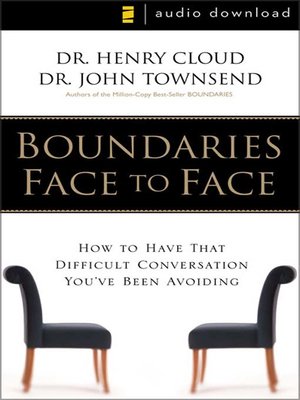Boundaries Face to Face
audiobook (Abridged) ∣ How to Have that Difficult Conversation You've Been Avoiding
By Henry Cloud

Sign up to save your library
With an OverDrive account, you can save your favorite libraries for at-a-glance information about availability. Find out more about OverDrive accounts.
Find this title in Libby, the library reading app by OverDrive.



Search for a digital library with this title
Title found at these libraries:
| Loading... |
A practical handbook on positive confrontation by the authors of the award-winning and best-selling Boundaries. Successful people confront well. They know that setting healthy boundaries improves relationships. They have discovered that uncomfortable—even dangerous—situations can often be avoided or resolved through direct conversation. But most of us don't know how to go about having difficult conversations. We see confrontation as scary or adversarial. We're afraid to ask a boss for a raise or talk to a relative about a drinking problem, or even address a relational conflict with a spouse or someone we are dating. In Boundaries Face to Face authors Cloud and Townsend take the principles from their best-selling book Boundaries and apply them to a variety of the most common difficult situations and relationships.






